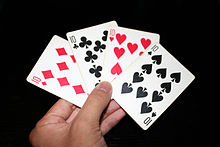10
Appearance
(Redirected from AD 10)
| Millennium: | 1st millennium |
|---|---|
| Centuries: | 1st century BC – 1st century – 2nd century |
| Decades: | 10s BC 0s BC 0s – 10s – 20s 30s 40s |
| Years: | AD 7 AD 8 AD 9 – AD 10 – AD 11 AD 12 AD 13 |
| Gregorian calendar | AD 10 X |
| Ab urbe condita | 763 |
| Assyrian calendar | 4760 |
| Balinese saka calendar | N/A |
| Bengali calendar | −583 |
| Berber calendar | 960 |
| Buddhist calendar | 554 |
| Burmese calendar | −628 |
| Byzantine calendar | 5518–5519 |
| Chinese calendar | 己巳年 (Earth Snake) 2706 or 2646 — to — 庚午年 (Metal Horse) 2707 or 2647 |
| Coptic calendar | −274 – −273 |
| Discordian calendar | 1176 |
| Ethiopian calendar | 2–3 |
| Hebrew calendar | 3770–3771 |
| Hindu calendars | |
| - Vikram Samvat | 66–67 |
| - Shaka Samvat | N/A |
| - Kali Yuga | 3110–3111 |
| Holocene calendar | 10010 |
| Iranian calendar | 612 BP – 611 BP |
| Islamic calendar | 631 BH – 630 BH |
| Javanese calendar | N/A |
| Julian calendar | AD 10 X |
| Korean calendar | 2343 |
| Minguo calendar | 1902 before ROC 民前1902年 |
| Nanakshahi calendar | −1458 |
| Seleucid era | 321/322 AG |
| Thai solar calendar | 552–553 |
| Tibetan calendar | 阴土蛇年 (female Earth-Snake) 136 or −245 or −1017 — to — 阳金马年 (male Iron-Horse) 137 or −244 or −1016 |

10 is a year in the 1st century. It was a common year starting on Wednesday of the Julian calendar. At the time, throughout the Roman Empire, it was known as the year of the consulship of Dolabella and Silanus
Events
[change | change source]- Differentiation of localized Teutonic tribes of the Irminones.
- The Greek dynasty in Bactria is ended
- Publius Cornelius Dolabella is a Roman Consul.
- Illyria is divided into Pannonia and Dalmatia.
- Ovid finishes writing Tristia (the "Sorrows") (5 books) and Epistulae ex Ponto (Letters from the Black Sea) (4 books) describing the sadness of banishment.
Births
[change | change source]- Hero of Alexandria, Greek engineer (d. c. 70)
- Saint Peter, one of Jesus' disciples and the first pope (d. c. 64).
Deaths
[change | change source]- Didymus Chalcenterus, Greek scholar and grammarian. (b. c. 63 BC)
